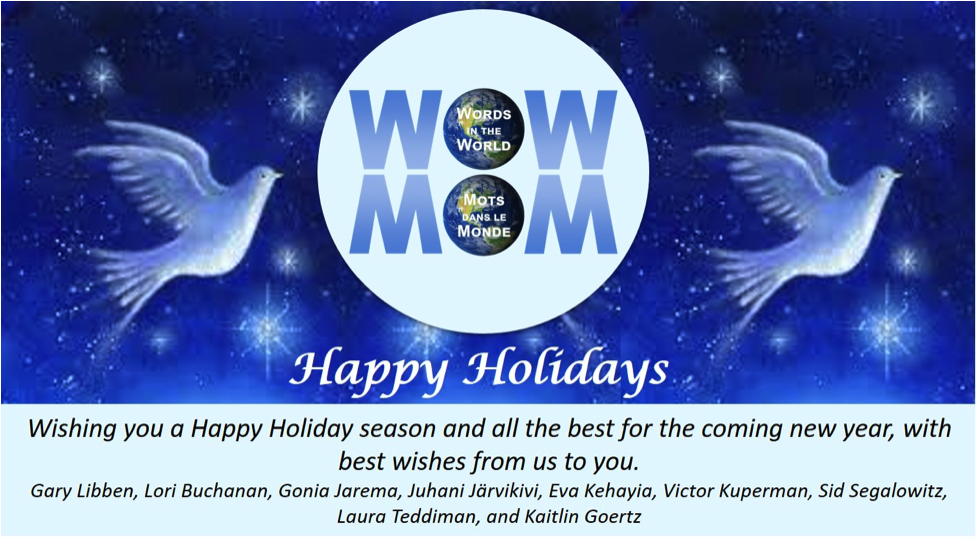Due to the uncertainty surrounding the Coronavirus pandemic, many across the Words in the World network have suspended face-to-face operations including experimentation in traditional laboratory environments. We are therefore making a concerted effort to migrate as many of our research projects to an online format as possible. By moving toward this goal, we are working not only to protect the health and safety of our colleagues and research participants, but also to move forward with the majority of our research endeavours.
With these purposes in mind, we’d like to take this opportunity to introduce a new Words in the World feature: Open Office Hours. The purpose of the Open Office Hour is to provide an accessible online version of the traditional university office hour, in which our research partners hold a brief informal discussion on a topic within their expertise and take questions regarding that topic. Our first Open Office Hours are listed below and focus on online experimentation in Psycholinguistic research.
Update
A follow-up office hour with Dr. Kuperman is scheduled for Friday, March 27, from 1 – 2pm Eastern (GMT -4). See the announcement here: https://bit.ly/33K3Svy
“How to collect psycholinguistic data from home: Introduction to crowdsourcing tools”
Host: Victor Kuperman
Date: Tuesday, March 24, 2020
Time: 1 p.m. – 2 p.m. EST (GMT -4)
Ability to collect experimental data outside of the lab is of great importance for reaching out to populations outside of university convenience subject pools. This importance is even greater when lab testing is undesirable. This first session of “open office hours” will introduce rich possibilities for data collection using crowdsourcing tools like Amazon’s Mechanical Turk (mturk.com). We will cover several basic types of experiments (surveys, collection of ratings, linguistic judgments, and written responses), and discuss practicalities of online testing. Several small experiments will be created and results collected and discussed.
No prior knowledge is expected. The session is designed for 20-30 minutes of an informal presentation, followed by the Q&A. Ideas for experiments are very welcome.
Connect via Zoom: https://bit.ly/394W74o
See the event listing for alternative ways to connect.
“Running chronometric experiments online using PsychoPy3″
Host: Jordan Gallant
Date: Tuesday, March 31, 2020 (GMT -4)
Time: 1 p.m. – 2 p.m. EST
Connect via Zoom: https://zoom.us/j/495738797
Online experiments offer a range of possibilities and benefits that have yet to be fully explored. This office hour will introduce PsychoPy3, a new experiment development software that uses Javascript to create experiments that can be run on web-browsers. In the first half of the office hour, I will demonstrate how a simple lexical decision experiment can be 1) created, 2) hosted online, and 3) run using participants recruited via Mechanical Turk. The second half will be a Q&A where the limitations/possibilities of PsychoPy3 and online chronometric experimentation in general can be discussed.




